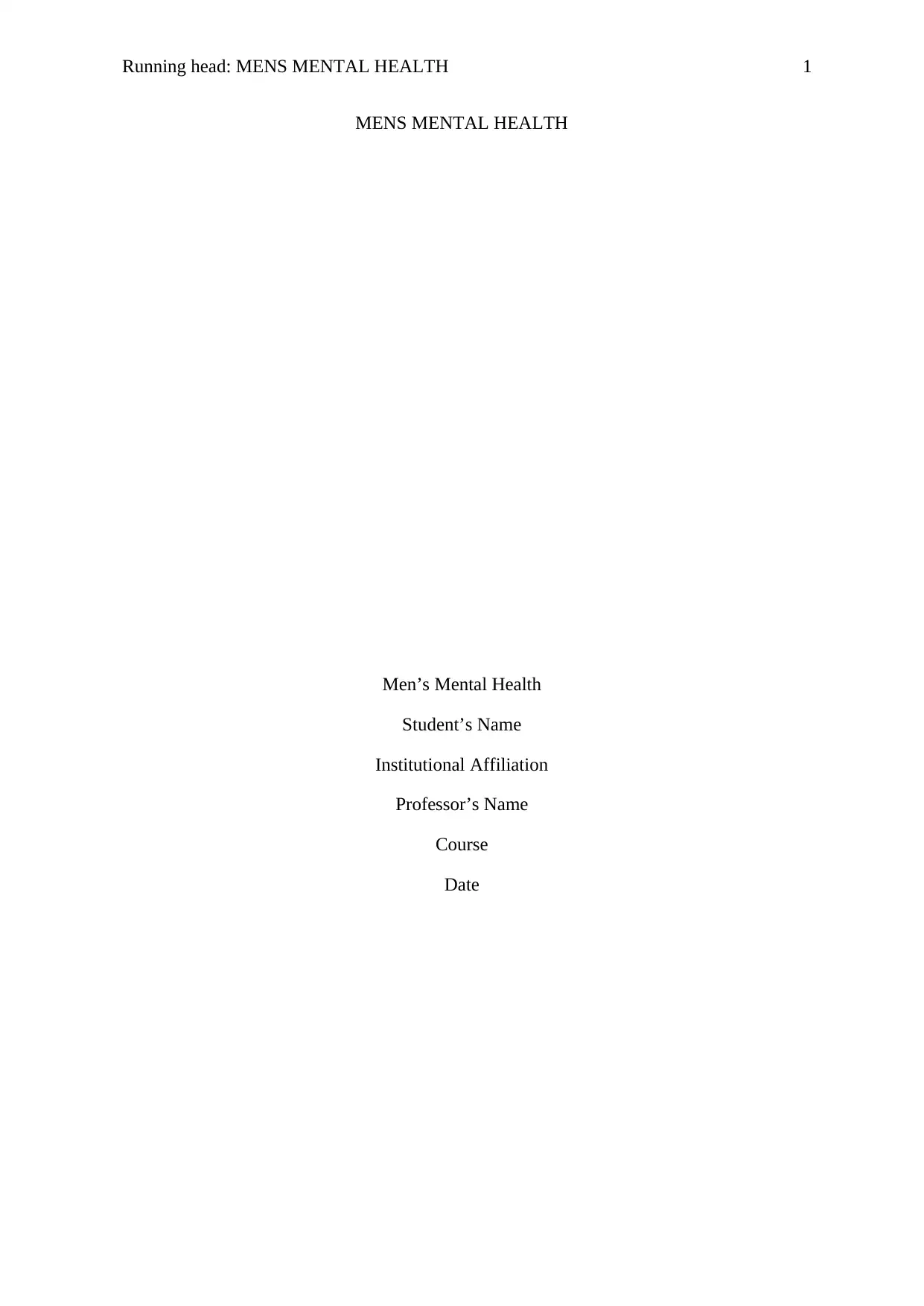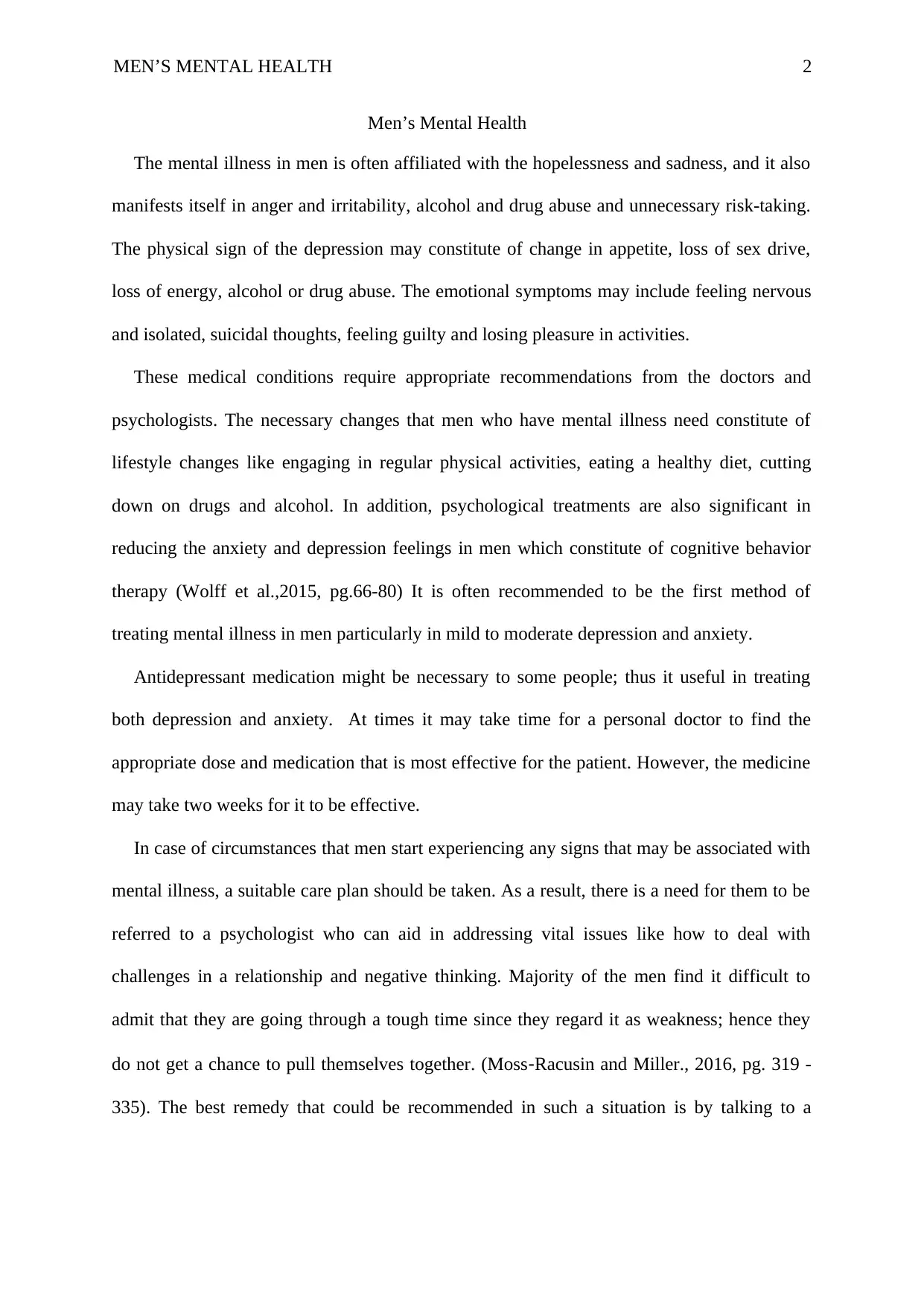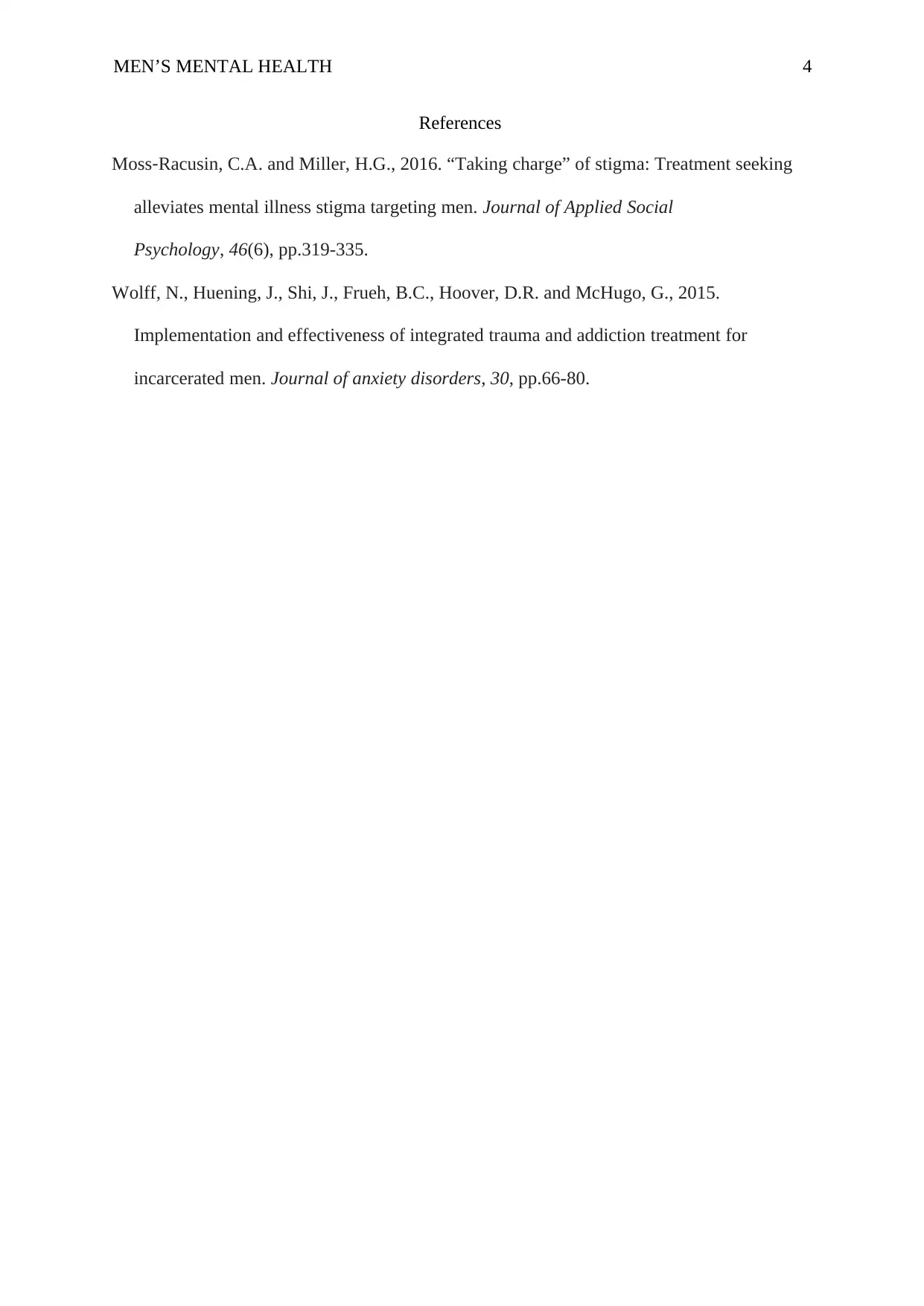Report on Men's Mental Health: Challenges and Treatment Approaches
VerifiedAdded on 2023/01/19
|4
|526
|49
Report
AI Summary
This report examines the critical aspects of men's mental health, addressing the symptoms of mental illness, such as hopelessness, irritability, and substance abuse. It delves into various treatment approaches, including lifestyle changes like regular physical activity and dietary adjustments, as well as psychological treatments such as cognitive behavior therapy. The report emphasizes the importance of seeking professional help, including consultations with psychologists to address relationship issues and negative thinking patterns. It also highlights the significance of open communication with trusted individuals like partners, friends, or family members to prevent the worsening of mental health conditions. The report also references studies like those by Wolff et al. (2015) and Moss-Racusin and Miller (2016), providing a comprehensive understanding of the challenges and potential solutions in men's mental health.
1 out of 4











![[object Object]](/_next/static/media/star-bottom.7253800d.svg)